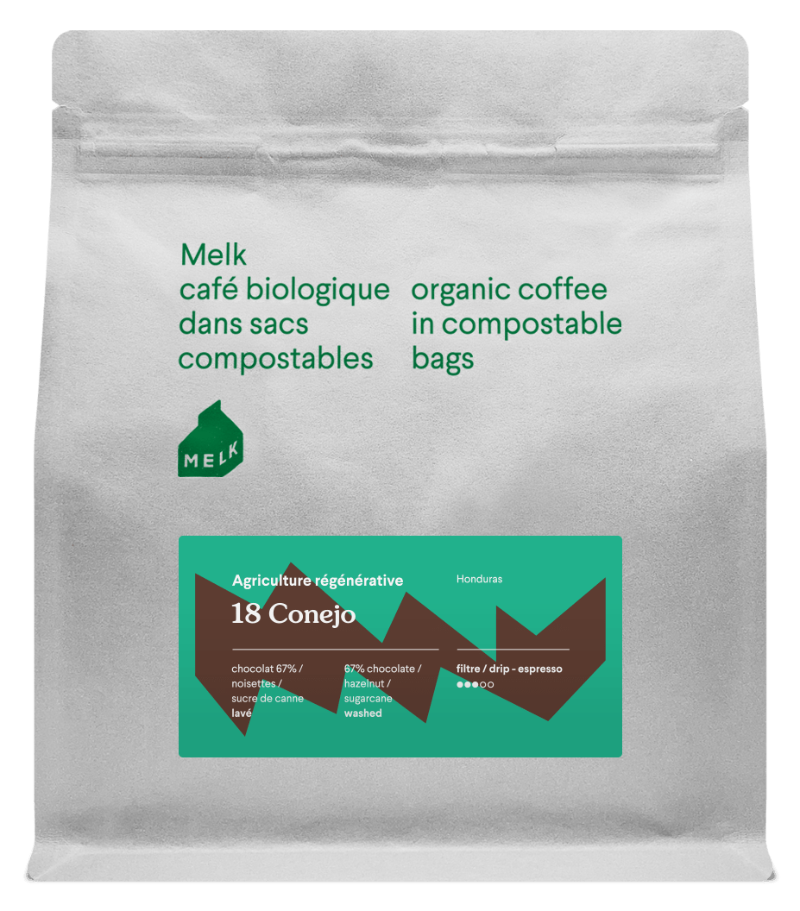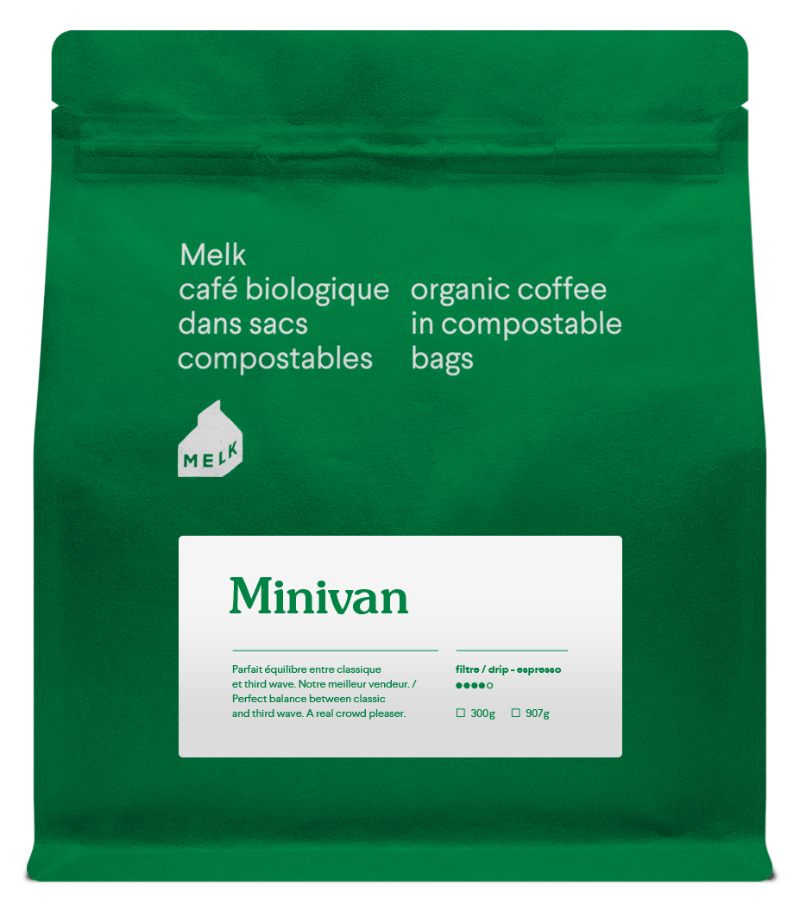What Is Third Wave Coffee? A Guide to the Coffee Movement
A Healthier, More Meaningful Brew
If you've ever heard the phrase "third wave coffee" and wondered what it really means, you're not alone. Much like the evolution of food movements (from fast food to farm-to-table) coffee too has gone through a series of "waves" that reflect how we grow, source, and enjoy coffee.
Let's explore what third wave coffee is, where it came from, and why it resonates with coffee lovers who care about quality, sustainability, and wellness.

The Quick Scoop
Third wave coffee treats coffee as a craft rather than a commodity. It celebrates single-origin beans, transparent sourcing, and ethical production. Unlike commercial coffee, third wave coffee emphasizes the unique flavors of carefully selected beans, the people who grow them, and the methods used to highlight their best qualities. It's coffee with depth, integrity, and intention.
Understanding the Waves of Coffee
First Wave Coffee: Mass Market Convenience
The first wave of coffee began in the early 20th century and focused on making coffee accessible to everyone. Think supermarket coffee—affordable, convenient, and widely available. Brands like Folgers and Maxwell House made coffee a household staple, but the focus was more on consistency than quality or origin.
Key features of first wave coffee included:
- Pre-ground, vacuum-packed coffee for homes
- Focus on convenience and consistency
- Little attention to bean origins or quality
- Aggressive marketing campaigns making coffee a daily American ritual
First Wave Priorities
Convenience:
Affordability:
Origin Transparency:
Quality & Flavor:
Second Wave Coffee: Café Culture & Espresso
The second wave emerged in the late 1960s through the 1990s with companies like Starbucks and Peet's Coffee leading the charge. This era introduced specialty drinks like lattes and cappuccinos to the mainstream and brought café culture to America.
Key elements of second wave coffee included:
- Introduction of espresso-based beverages
- Recognition of coffee origins (e.g., "Colombian" or "Ethiopian")
- Darker roast profiles that emphasized boldness
- The coffee shop as a "third place" between home and work
- Introduction of terms like "barista" into common vocabulary
Second Wave Priorities
Convenience:
Café Experience:
Origin Transparency:
Quality & Flavor:
Third Wave Coffee: Artisanal Craft & Origin
The third wave, which began gaining momentum in the early 2000s, treats coffee not as a commodity but as an artisanal product like wine or craft beer. This movement emphasizes the intrinsic qualities of coffee, celebrating the unique flavors of single-origin beans, transparency in sourcing, and innovative brewing methods. Read what Nick Cho, a respected third-wave coffee connoisseur, aka 'Your Korean Dad,' has to say about 3rd wave coffee at Food & Wine.
Key aspects of third wave coffee include:
- Direct trade and single-origin sourcing
- Lighter roast profiles to highlight natural flavors
- Manual brewing methods (pour-over, Chemex, AeroPress)
- Detailed information about farms, processing, and roast dates
- Focus on sustainability and ethical sourcing
Third Wave Priorities
Flavor Complexity:
Ethical Sourcing:
Origin Transparency:
Quality & Craft:
Fourth Wave Coffee: Innovation & Accessibility
While still emerging and being defined, the fourth wave of coffee appears to focus on making specialty coffee more accessible while leveraging technology and science to enhance the coffee experience. It builds on third wave principles but adds scalability and innovation.
Emerging trends in the fourth wave include:
- High-quality coffee available in mainstream outlets
- Technology-driven brewing and personalized recommendations
- Advanced sustainability initiatives beyond organic
- Premium at-home coffee experiences
- Democratization of coffee knowledge through digital platforms
- Science-based approaches to farming, processing, and brewing
Fourth Wave Emerging Priorities
Technology Integration:
Scientific Approach:
Scalable Quality:
Advanced Sustainability:
What Is Third Wave Coffee?
The third wave treats coffee not as a commodity, but as a craft. It's a movement that celebrates the unique flavors of single-origin beans, the people who grow them, and the methods used to bring out their best.
"Third wave coffee is coffee with depth. With integrity. With intention. It's coffee where every step of the journey (from seed to cup) is treated with respect and care."
Unlike commercially produced coffee, third wave coffee prioritizes quality over quantity, sustainability over efficiency, and transparency over anonymity. It invites coffee lovers to engage more deeply with their daily brew, to know its story, appreciate its complexity, and recognize the craftsmanship behind it.
Third wave coffees often showcase bright, complex flavors that reflect their unique growing regions and processing methods. These aren't masked by dark roasting but instead highlighted through careful roasting and brewing techniques that bring out the bean's natural characteristics.
Key Features of Third Wave Coffee
| Feature | What It Means |
|---|---|
| Single-Origin Beans | Sourced from one farm or region, not blended, allowing distinct flavors to shine. |
| Light to Medium Roasts | Roasted gently to highlight natural taste, not mask it with darker roasting. |
| Ethical Sourcing | Supports fair wages and sustainable practices at the farm level. |
| Innovative Brewing | Embraces techniques that honor bean quality and reduce toxins. |
| Transparency | Detailed information about origin, processing method, and roast date. |
| Freshness Focus | Emphasis on properly rested but freshly roasted beans for optimal flavor. |
| Latte Art | A sign of craftsmanship and attention to detail. |
Quality
In third wave coffee, quality is paramount. This means:
- Beans are selected from small, traceable farms and cooperatives
- Coffee is often grown at high altitudes for more complex flavor development
- Roasting is done in small batches with precise temperature control
- Flavor is evaluated through professional cupping sessions
- Storage and freshness are carefully managed to preserve quality

Sustainability
Ethical sourcing and sustainable farming practices are core to the third wave movement:
- Direct trade relationships that bypass traditional supply chains
- Fair prices paid to farmers, often significantly above commodity markets
- Organic and regenerative farming practices that protect ecosystems
- Biodynamic certification, which goes beyond organic to support soil health
- Environmental responsibility throughout production and packaging
At Holistic Roasters, our Biodynamic certification represents our commitment to long-term soil and plant health through advanced sustainable farming practices.

Transparency
Third wave coffee emphasizes transparency at every step:
- Information about the farm, farmer, and growing region
- Details on elevation, varietal, and processing method
- Harvest and roast dates clearly marked
- Pricing structures that show how much goes to farmers
- Open communication about production practices and quality control
This transparency builds trust and deepens appreciation. When you know your coffee's story, you connect more meaningfully with each cup.

Innovation
The third wave embraces innovative approaches to brewing and enjoying coffee:
- Manual brewing methods like pour-over, Chemex, and AeroPress
- Refractometers and scales for precision brewing
- Alternative processing methods like honey, natural, and experimental fermentation
- Temperature-controlled brewing water
- Advanced grinder technology for consistent particle size
These innovations aren't about complexity for its own sake—they're tools to extract the full spectrum of flavor in a mindful, almost meditative process.

Why Is Third Wave Coffee Growing in Popularity?
Rising Interest in Third Wave Coffee
Authenticity
Knowing who grew your coffee, and how it was handled, builds real trust and connection in an increasingly impersonal world.
Clean Living
Some third wave roasters lab-test their beans for mold, mycotoxins, and other contaminants, aligning with modern health consciousness.
Environmental Stewardship
Regenerative and Biodynamic farming support soil health and carbon sequestration, helping fight climate change.
Personal Expression
Third wave coffee gives you the tools to tailor your brew (and your ritual) to your personal taste preferences.
Today's consumers are increasingly mindful about what they eat and drink. Third wave coffee fits into that movement by offering a more intentional, traceable, and health-conscious coffee experience that aligns with contemporary values and priorities.
Third Wave Coffee vs. Specialty Coffee: Is There a Difference?
Specialty coffee refers specifically to high-quality beans that have been graded by professional tasters (called Q-graders) and scored at least 80 points on a 100-point scale. It's primarily a quality classification system for the beans themselves.
The term originated in 1974 when Erna Knutsen used it to describe beans of exceptional quality grown in special microclimates. Specialty coffee focuses on the technical aspects of production and quality assessment.
While they often overlap, third wave coffee is a broader cultural movement that encompasses not just bean quality but also ethical sourcing, brewing innovation, and consumer education.
Third wave roasters often use specialty-grade beans—but go further by prioritizing direct relationships with farmers, transparency in the supply chain, and consumer education about coffee's journey from seed to cup.
Think of it this way: specialty coffee can be part of any wave (even some second wave coffee shops use specialty-grade beans), but third wave is a philosophical approach to coffee that typically includes specialty beans.
Yes! A coffee can be technically classified as specialty (scoring 80+ points) but still be sold and marketed in a second wave context without the philosophical underpinnings of the third wave movement.
For example, a large chain might sell a limited-edition single-origin coffee that qualifies as specialty grade but doesn't provide detailed information about the farm, processing methods, or roast date—key elements of the third wave approach.
If you're looking for both high-quality specialty coffee that embraces third wave principles, look for these indicators:
- Specific information about the farm, farmer, and region
- Details about varietals, processing methods, and altitude
- A roast date (not just a "best by" date)
- Lighter to medium roast profiles that highlight the bean's natural characteristics
- Transparent sourcing information or direct trade claims
- Sustainability certifications like Organic, Fair Trade, Rainforest Alliance, or Biodynamic
At Holistic Roasters, we offer coffee that meets both specialty quality standards and embraces the values of the third wave movement.
Looking Ahead: The "Fourth Wave" and What's Next
Many in the industry are now watching the rise of a fourth wave of coffee, a new chapter that blends high-quality coffee with technology, accessibility, and even deeper sustainability.
Imagine espresso machines that customize your brew based on the unique characteristics of the beans, blockchain technology that traces your coffee’s journey to the exact plot of land, or regenerative farming becoming the global standard. We hope you stay ahead of the curve by exploring ways to make clean, ethical coffee the norm, not the niche.
Final Thoughts
So, what is third wave coffee?
It's coffee with depth. With integrity. With intention.
It's the kind of coffee we roast at Holistic Roasters: certified Biodynamic and Organic, lab-tested for purity, and roasted in small batches to honor every bean's unique story. Whether you're sipping at one of our cafés or brewing at home, we invite you to slow down, taste the difference, and join us in this evolving journey.
"Coffee isn't just a drink, it's a path to better living. The third wave recognizes that something as simple as your daily brew can connect you to far-off places, support sustainable farming, and bring moments of mindfulness to even the busiest days."
Experience Third Wave Coffee for Yourself
At Holistic Roasters, we strive to embody the best of third wave coffee principles with our commitment to Biodynamic farming, ethical sourcing, and exquisite flavor. Our small-batch roasting process ensures that each bean reaches its full potential, delivering a clean, complex cup that tells a story with every sip.
Shop Biodynamic Coffee



Leave a comment